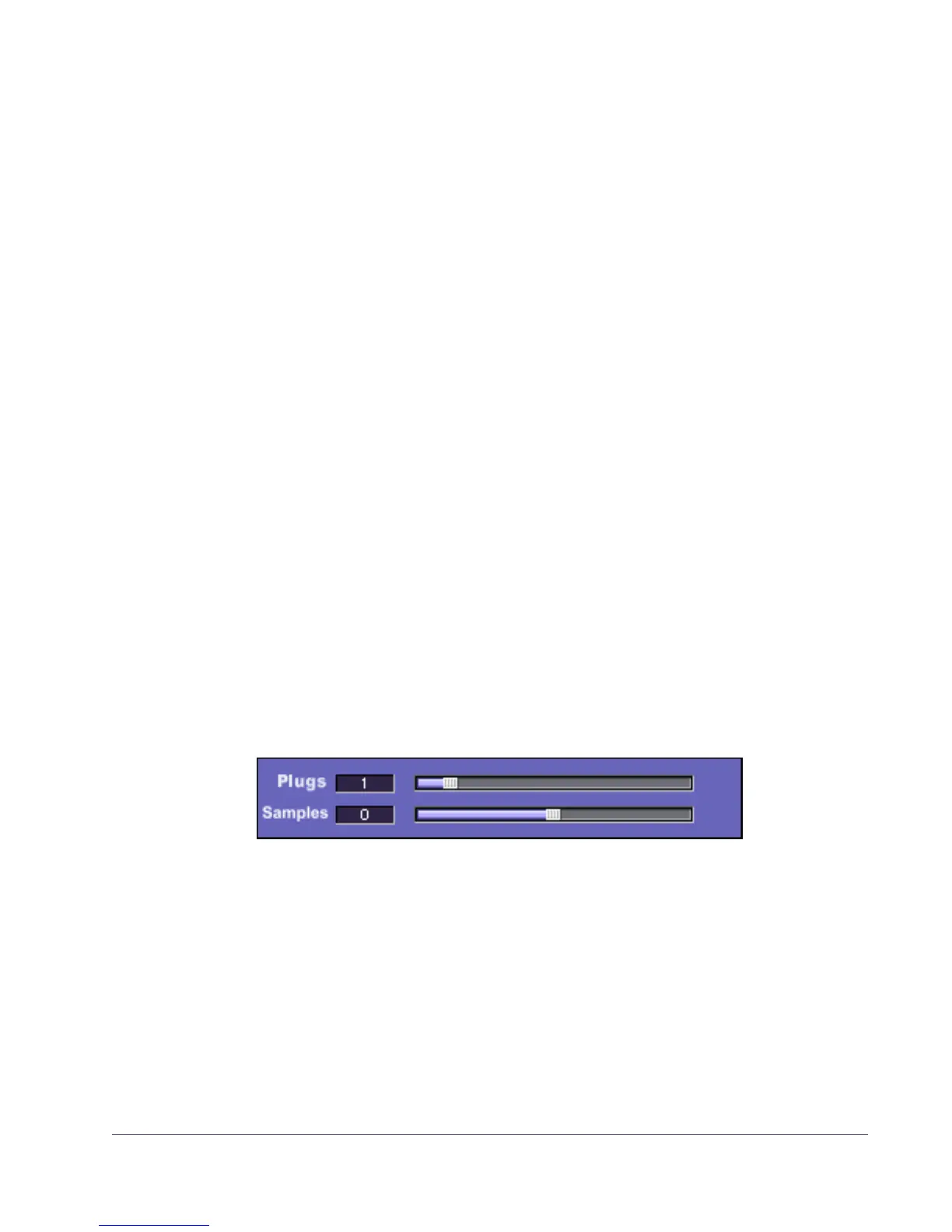UAD Powered Plug-Ins Manual - 106 - Chapter 9: UAD Delay Compensation
UAD-1 Track Advance
Overview The previous discussions on delay compensation (see “Latency & Delay Com-
pensation” on page 101) apply mainly when using only audio tracks. When
MIDI tracks are played simultaneously alongside audio tracks, a different (but
related) synchronization issue can arise.
Let’s say you have a MIDI track and an audio track with a UAD-1 plug-in on
the audio track insert. In this scenario, the host application will automatically
compensate for latency and no use of the UAD DelayComp or UAD Track Ad-
vance is required.
However, if the audio track is sent to a send/group/bus and that
send/group/bus has a UAD-1 plug-in on it, the audio track will be delayed
in relation to the MIDI track because the host does not compensate for latency
automatically on groups/buses (unless full-path latency compensation is im-
plemented in the host). If the MIDI track was an audio track, you would use the
UAD DelayComp on it to compensate for the latency. But you can’t put a UAD
DelayComp on a MIDI track, so what to do?
Enter the UAD-1 Track Advance plug-in (TrackAdv for short). It operates just
like the DelayComp plug-in, but backwards. Instead of delaying unprocessed
tracks, it shifts them forward. It does this by reporting to the host application
that a track has a UAD plug-in on it, so the host compensates for the latency.
However, the track audio is not actually processed by the UAD so the net re-
sult is that the audio plays early.
Note: UAD TrackAdv is available for UAD-1 only.
Note: The Track Advance plug-in only works in hosts that support partial
(track inserts only) automatic delay compensation.
When to use
T
rackAdv
UAD TrackAdv should be used whenever MIDI tracks are played alongside
audio tracks that are assigned to a send/group/bus that is using UAD-1 plug-
in(s).
Figure 24. The UAD Track Advance plug-in window

